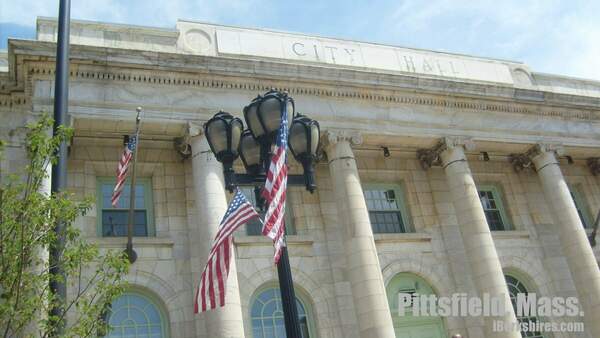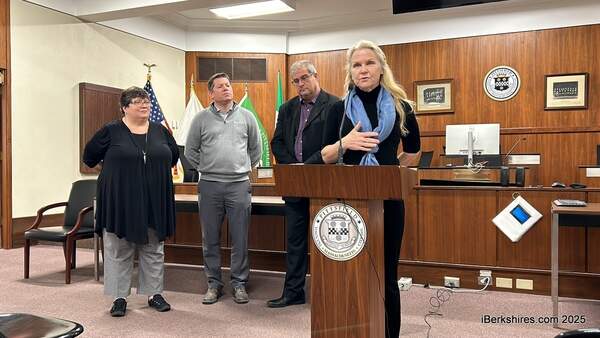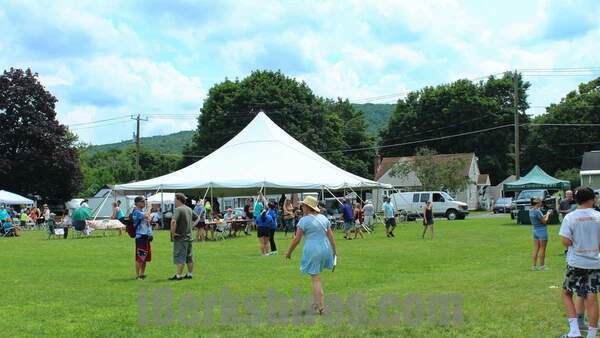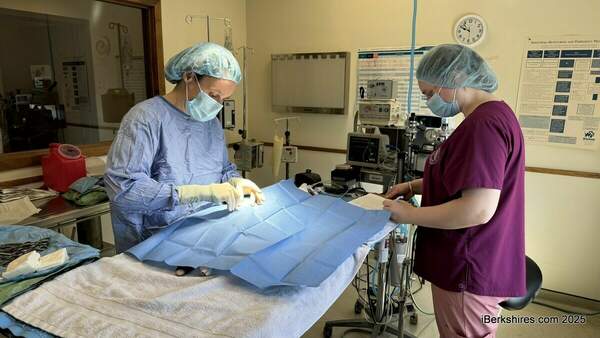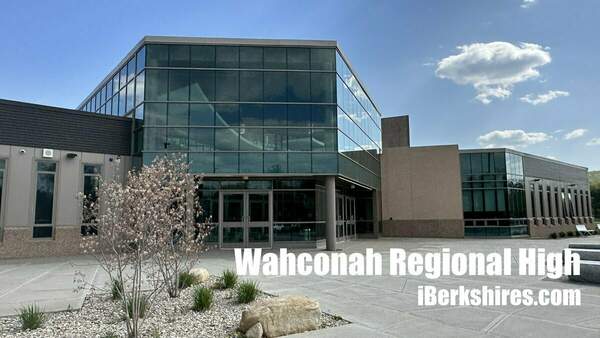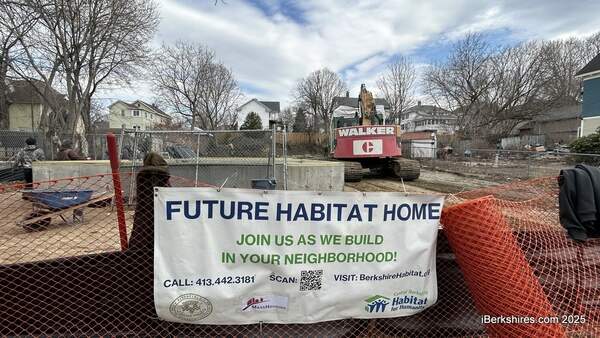State Awards $4.6M for Ecological Restoration and Climate Change Projects
BOSTON, Mass. – The state Department of Fish and Game’s Division of Ecological Restoration is awarding $4,635,000 in grants through three programs that will strengthen community preparedness for large storms, improve climate-ready infrastructure, protect fisheries, wildlife, and river habitats, and restore floodplain habitat and flood storage capabilities.
$1.8 million has been awarded to 13 municipalities through DER’s Culvert Replacement Municipal Assistance (CRMA) Grant Program, $600 thousand to support three Restoration Partnerships through DER’s Regional Restoration Partnerships Program, and $2.2 million to 15 Priority Ecological Restoration Projects. Additionally, in December 2021, Governor Baker signed a $4 billion federal COVID-19 relief funding spending bill from the American Rescue Plan Act of 2021 (ARPA). Funding for this year’s DER projects have been awarded through the division’s capital budget and funds provided by the ARPA spending plan.
"Since coming into office, our Administration has taken a proactive approach to address climate change, and these ecological restoration grants will further our efforts to address aging infrastructure while enhancing outdoor recreation," said Governor Charlie Baker. "Through these programs, we are investing in our communities’ future by strengthening the Commonwealth’s climate resilience, creating jobs, and improving access to nature for residents to benefit from."
"The Commonwealth’s lands and waters are a crucial part of the state’s infrastructure in contributing to the safety of our residents and the health of our ecosystems," said Lieutenant Governor Karyn Polito. "The strong relationships between our Administration and municipalities have enabled the transformative restoration of many habitats and wildlife that are directly beneficial to our communities and those who live within them."
The CRMA Grant Program supports culvert replacement projects that improve river health and municipal roads in communities across the Commonwealth. Through a competitive process, the program assists municipalities in replacing undersized and deteriorating culverts with crossings that meet improved design standards for fish and wildlife passage, river health, and storm resiliency. The grants also help municipalities deal with the ever-growing cost of aging road infrastructure. Furthermore, DER’s Regional Restoration Partnerships Program was established in 2021. This program builds the capacity of local and regional organizations to advance restoration work collaboratively. The Partnerships Program helps non-profit organizations and Regional Planning Agencies to lead and support ecological restoration within their regions. Pairing partner strengths with the state's investments empower networks of partners to restore rivers and wetlands and helps people and nature adapt to climate change.
Recognizing the importance of these investments, the Baker-Polito Administration has proposed utilizing ARPA funding in the FORWARD Act to address the Commonwealth’s ecological and community resiliency. The bill, which is currently before the legislature, includes $1.4 million for culvert projects.
"The Baker-Polito Administration continues to foster strong partnerships with municipalities to make significant investments that allow communities to restore their roads, streams, and fisheries," said Energy and Environmental Affairs Secretary Beth Card. "As communities throughout the Commonwealth feel the increasing impacts of climate change, these ecological restoration projects will create an appealing and functional community refuge for residents and wildlife across the Commonwealth."
"Ecological restoration improves habitat, water quality, and public safety, all critical to creating more opportunities for Massachusetts residents and visitors to enjoy outdoor recreation all across the Commonwealth," said Department of Fish and Game Commissioner Ron Amidon. "Importantly, these DER programs will advance significant projects that will greatly benefit local communities, ecosystems, and wildlife."
Additionally, the Priority Projects Program is one of the vehicles by which DER pursues restoration projects that present the most significant benefits. The Priority Projects include dam removal, culvert replacement, river, wetland, salt marsh, and cranberry bog restoration projects, which will restore healthy habitat and provide benefits to Massachusetts communities, such as addressing the expected impacts of climate change. Once completed, these projects will provide significant social, environmental, and economic benefits to the Commonwealth and local communities. To review a full list of active ecological restoration Priority Projects throughout the state, please visit DER’s Priority Projects Map webpage.
“The Division of Ecological Restoration is excited to support such a wide array of ecological restoration projects to restore wetlands and waterways throughout the Commonwealth,” said DER Director Beth Lambert. “The Baker-Polito Administration looks forward to working with its partners to move this important work forward.”
The following 13 projects were awarded grant funds through the CRMA Grant Program:
- Project: Elmer Brook Culvert Replacement, South Hadley
Award: Town of South Hadley, $147,500 ($122,500 DER Capital; $25,000 ARPA)
Summary: The Town of South Hadley will conduct field data collection, design, and permitting for a culvert replacement project along Elmer Brook at Pearl Street. The replacement of the culvert will restore natural stream functions and improve connectivity on Elmer Brook.
- Project: Falulah Brook Culvert Replacements, Fitchburg
Award: City of Fitchburg, $143,500 ($125,500 DER Capital; $18,000 ARPA)
Summary: The City of Fitchburg will conduct field data collection, engineering, design, and permitting work on two culvert replacement projects along the Falulah Brook and tributary along Ashby West Road. Replacing these degrading culverts will increase wildlife habitat and passage, reduce flooding hazards and unmanaged runoff and erosion, and improve the Falulah Brook water quality.
- Project: Hop Brook Culvert Replacement, Belchertown
Award: Town of Belchertown, $150,000 (ARPA)
Summary: The Town of Belchertown will conduct design, engineering, and permitting work on a culvert replacement project along Hop Brook at Warren Wright Road. Replacing this structure will improve stream connectivity and wildlife access and reduce flooding risk on Hop Brook.
- Project: Jones River Culvert Replacement, Kingston
Award: Town of Kingston, $75,000 (DER Capital)
Summary: The Town of Kingston will conduct engineering, design, and permitting work on a culvert replacement project along Jones River at Lake Street. Replacing this undersized crossing will improve natural stream functions and stream connectivity on the Jones River.
- Project: Karner Brook Tributary Culvert Replacement, Egremont
Award: Town of Egremont, $26,500 (DER Capital)
Summary: The Town of Egremont will conduct engineering, design, and permitting work on a culvert replacement project along a tributary to Karner Brook at Blunt Road. Replacing this perched and degrading structure will improve stream connectivity and decrease barriers to wildlife passage.
- Project: Kickemuit River Culvert Replacements, Swansea
Award: Town of Swansea, $126,000 (DER Capital)
Summary: The Town of Swansea will conduct field data collection and conceptual design work on three culvert replacement projects along the Kickemuit River at Stephen French Road, Burnside Drive, and Lynwood Road. Replacing these undersized crossings will restore stream connectivity, reduce wildlife barriers, and reduce flooding risk on the Kickemuit River.
- Project: King Brook Culvert Replacement, Hawley
Award: Town of Hawley, $100,000 (ARPA)
Summary: The Town of Hawley will conduct design, engineering, and permitting work on a culvert replacement project along King Brook at West Hawley Road (8A), as well as explore removing a small stream barrier immediately upstream. Removing these stream barriers will improve wildlife passage on King Brook.
- Project: Miscoe Brook Culvert Replacement, Franklin
Award: Town of Franklin, $44,500 (DER Capital)
Summary: The Town of Franklin will conduct field data collection work on a culvert replacement project along the Miscoe Brook at South Street. Replacing this undersized culvert will increase wildlife passage and stream connectivity and reduce flooding hazards on Miscoe Brook.
- Project: Noanet Brook Culvert Replacements, Dover
Award: Town of Dover, $60,000 (DER Capital)
Summary: The Town of Dover will conduct field data collection work on two culvert replacement projects along the Noanet Brook at Willow Street and Dedham Street. Replacing these undersized culverts on Noanet Brook will improve the connectivity of over two miles of coldwater fishery for wildlife, including rare species.
- Project: Satucket River Culvert Replacement, East Bridgewater
Award: Town of East Bridgewater, $340,000 (ARPA)
Summary: The Town of East Bridgewater will complete construction work on a culvert replacement project along the Satucket River at Pond Street. Replacing this structure will improve stream connectivity and wildlife passage, decrease flooding hazards on the Satucket River, and provide resilience to critical infrastructure.
- Project: Savery Brook Culvert Replacement, Washington
Award: Town of Washington, $367,000 (ARPA)
Summary: The Town of Washington will conduct construction work on a culvert replacement project along the Savery Brook at Frost Road. Replacing this partially-collapsed, undersized, and perched structure will increase stream connectivity, improve aquatic habitat, and reduce flooding hazards.
- Project: Scott Road Culvert Replacement, Harvard
Award: Town of Harvard, $50,000 (DER Capital)
Summary: The Town of Harvard will conduct field data collection and preliminary engineering work on a culvert replacement project along an unnamed brook at Scott Road. Replacing this undersized and failing structure will reduce flooding hazards and barriers to wildlife passage.
- Project: Sucker Brook Culvert Replacements, Pepperell
Award: Town of Pepperell, $190,000 ($120,000 DER Capital; $70,000 ARPA)
Summary: The Town of Pepperell will conduct field data collection work on two culvert replacement projects along Sucker Brook at Sartelle Street and Sheffield Street, as well as construction to replace the failing Heald Street culvert. Replacing these degrading and perched structures will improve stream connectivity, wildlife access, and river function on Sucker Brook.
The following three projects were awarded funds through DER’s Regional Restoration Partnerships Program:
- Project: Berkshire Clean, Cold, Connected Restoration Partnership
Award: Housatonic Valley Association, $220,375 (DER Capital)
Summary: These funds will be used to assess and prioritize high-priority ecological restoration opportunities, such as road-stream crossing replacements, and to support regional partners contributing to planning and restoration efforts.
- Project: Buzzards Bay Watershed Restoration Partnership
Award: Buzzards Bay Coalition, $165,900 (DER Capital)
Summary: These funds will be used to evaluate restoration needs and opportunities, address information gaps, and develop and use a project prioritization model that weighs elements such as ecological benefit, climate resilience benefit, social readiness, and other cultural benefits, and financial feasibility.
- Project: Merrimack Restoration Partnership
Award: Merrimack River Watershed Council, $213,725 (DER Capital)
Summary: These funds will be used to support high-priority dam removal projects, the Talbot Mills feasibility study Technical Advisory Committee, and local partners working on the dam removal process and public outreach.
The following 15 projects were awarded funds through DER’s Priority Projects Program:
- Project: Abbey Brook Restoration & Revitalization, Chicopee
Award: City of Chicopee, $100,000 (ARPA)
Summary: The project is working to restore and revitalize Abbey Brook in Chicopee by removing two dams, replacing an undersized road-stream crossing, and “daylighting” a portion of the brook that runs underground through a culvert.
- Project: Bayview Bogs Restoration, West Yarmouth
Award: Cape Cod Conservation District, $50,000 (ARPA)
Summary: The project is working to restore approximately 90 acres of former cranberry farmland to natural wetlands. Funding will support baseline assessment and hydrologic study of the project site.
- Project: Becker Pond Dam Removal, Mt. Washington
Award: The Nature Conservancy, $50,000 (ARPA)
Summary: The project is working to remove the Becker Pond Dam, which will eliminate a public safety hazard, eliminate dam owner liability and future costs, and promote restoration of ecological processes and functions, including restored fish passage, repaired physical processes, and improved water quality. Funding will go towards completing the final designs, permitting, and bid phase services.
- Project: Broad Meadow Brook Restoration, Worcester
Award: Massachusetts Audubon Society, $60,000 (ARPA)
Summary: This project will improve water quality and ecological function in the stream and wetland complex. Funding will support hydrologic and hydraulic modeling and the development of conceptual restoration designs that meet project objectives and community needs.
- Project: Mattapoisett Bogs Restoration, Mattapoisett
Award: Buzzards Bay Coalition, $75,000 (ARPA)
Summary: This project seeks to re-naturalize 57 acres of retired cranberry bogs, restore aquatic connectivity to Tripps Mill Brook, and improve public access and amenities on the site. Funding will support the final design, bid document preparation, and construction.
- Project: Herring River Estuary Restoration, Wellfleet & Truro
Award: Friends of Herring River, $830,000 (DER Capital)
Summary: The project is working to restore natural tidal flow to approximately six miles of waterways and up to 1,000 acres of severely degraded estuarine habitats, which will improve water quality, enhance migratory fish access to hundreds of acres of spawning ponds, restore habitat, and increase coastal resilience to the effects of climate change and sea-level rise. Funding will support permitting, final engineering designs, monitoring, data collection, project management, and coordination.
- Project: Ipswich River Restoration, Ipswich
Award: Ipswich River Watershed Association, $40,000 (ARPA)
Summary: The project is working to remove two dams on the Ipswich River, which will open 49 miles of river and provide access to spawning habitat for various diadromous fish species. Funding will support structural and geotechnical investigations to facilitate dam removal design and permitting advancement for the removal of the Ipswich Mills Dam.
- Project: Kinne Brook Culvert Replacement, Chester
Award: Trout Unlimited, $25,000 (ARPA)
Summary: The project is working to replace a culvert and remove another on a tributary to Kinne Brook. Replacing the undersized culvert with a larger, safer structure and removing a failed culvert no longer in use will allow full upstream and downstream movement of aquatic species and reduce the risk of road damage and failure in flood conditions. Funding will support the completion of the final designs.
- Project: Larkin Road Dam Removal, Newbury
Award: Town of Newbury, $70,000 (ARPA)
Summary: The project seeks to remove the Larkin Road Dam and associated structures to restore fish passage for diadromous and resident aquatic species. Funding will support the development of conceptual and permitting-level engineering designs.
- Project: Marstons Mills Cranberry Bog Restoration, Barnstable
Award: Barnstable Clean Water Coalition, $70,000 (ARPA)
Summary: The project is working to restore approximately 56 acres of retired cranberry farmland to natural wetlands with improved water quality. Funding will support restoration project management and restoration design services.
- Project: Mill Pond Salt Marsh Restoration, Truro
Award: Town of Truro, $150,000 (ARPA)
Summary: The project is working to address a tidal restriction along Mill Pond Road caused by an undersized culvert by restoring tidal flow to 13 acres of salt marsh habitat and reducing storm flooding and erosion damage to infrastructure. Funding will advance engineering designs and initiate permitting.
- Project: Third Herring Brook Restoration, Hanover
Award: North and South River Watershed Association, $85,000 (ARPA)
Summary: The project is working to remove three barriers on Third Herring Brook, a Coldwater Fish Resource, and anadromous fish run in Hanover, which will restore ecological functions of the brook and improve wildlife passage. Funding will support construction and administration.
- Project: Town River Restoration, Bridgewater
Award: Town of Bridgewater, $550,000 (ARPA)
Summary: The project brings together the removal of the High Street Dam, replacement of the aging High Street Bridge, and protection and enhancement of surrounding infrastructure and public utilities, which will open 10 miles of river for fish access to historic spawning and rearing habitat, reduce area flood risk, eliminate the threat to public safety posed by sudden failure of the dam, and improve public access. Funding will support the construction phase of the project, expected to occur this summer.
- Project: Upper Coonamessett Wetland Complex Restoration, Falmouth
Award: Town of Falmouth, $50,000 (DER Capital)
Summary: The project will restore a healthy, self-sustaining wetland and stream system within over 20 acres of a former commercial cranberry bog and approximately 3,700 linear feet of river channel along the Coonamessett River. Funding will support the completion of the MEPA review of the project and the advancement of the engineering design.
- Project: Ware River Restoration, Hardwick
Award: Wheelwright Water District Commission, $10,000 (ARPA)
Summary: The project is working to remove the Wheelwright Pond Dam in Hardwick, which will open 41 upstream river miles, improve habitat for Eastern brook trout and other state-listed species, and restore natural river processes. Funding will support pre-implementation groundwater monitoring by the Wheelwright Water District.
“I want to thank the Baker Administration and DER Director Beth Lambert for their commitment to addressing climate change,” said Senator Edward J. Kennedy (D-Lowell). “These three grant programs support a diverse array of projects, and represent a significant investment by the Commonwealth into climate resiliency.”
“The Herring River Restoration Project will restore natural tidal flow and critical estuarine habitat to one of the largest saltwater marshes in the Commonwealth, which will reverse the ecological damage to this beautiful area, improve water quality, return marine life and shellfishing to the river and increase coastal resiliency as we face climate change,” said State Representative Sarah Peake (D-Provincetown). “I want to thank the Baker-Polito Administration for recognizing how important this project is to the Outer Cape.”
The mission of the Division of Ecological Restoration is to restore and protect the Commonwealth’s rivers, wetlands, and watersheds for the benefit of people and the environment. Additionally, the Department of Fish and Game is responsible for promoting the conservation and enjoyment of the Commonwealth's natural resources. DFG carries out this mission through land protection and wildlife habitat management, management of inland and marine fish and wildlife species, and ecological restoration of fresh water, salt water, and terrestrial habitats. DFG promotes enjoyment of the Massachusetts environment through outdoor skills workshops, fishing festivals and other educational programs, and by enhancing access to the Commonwealth's rivers, lakes, and coastal waters.
Tags: department of fish and game, infrastructure improvements,

